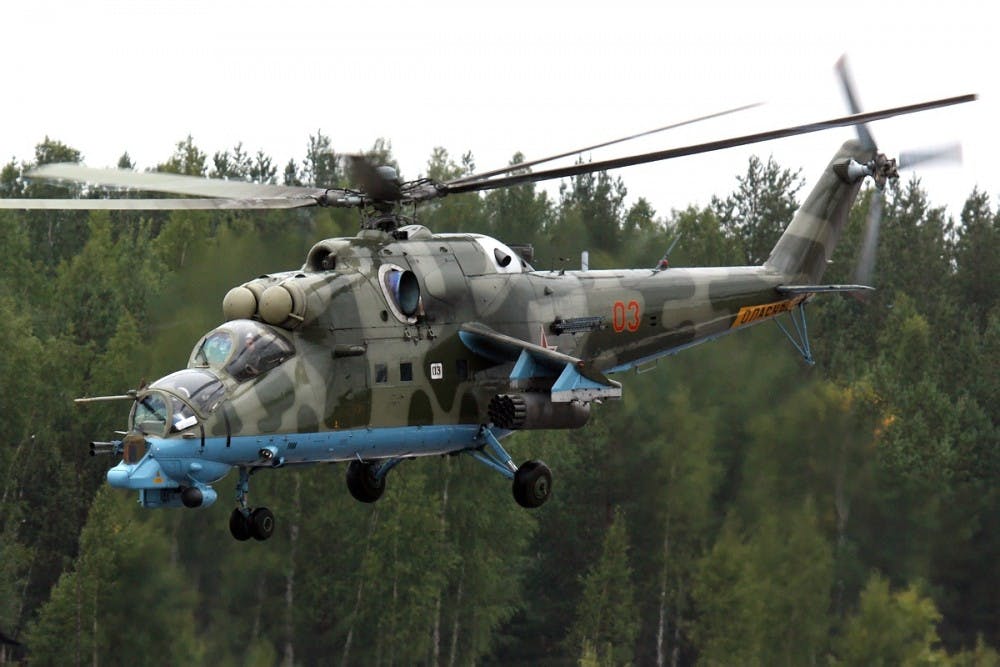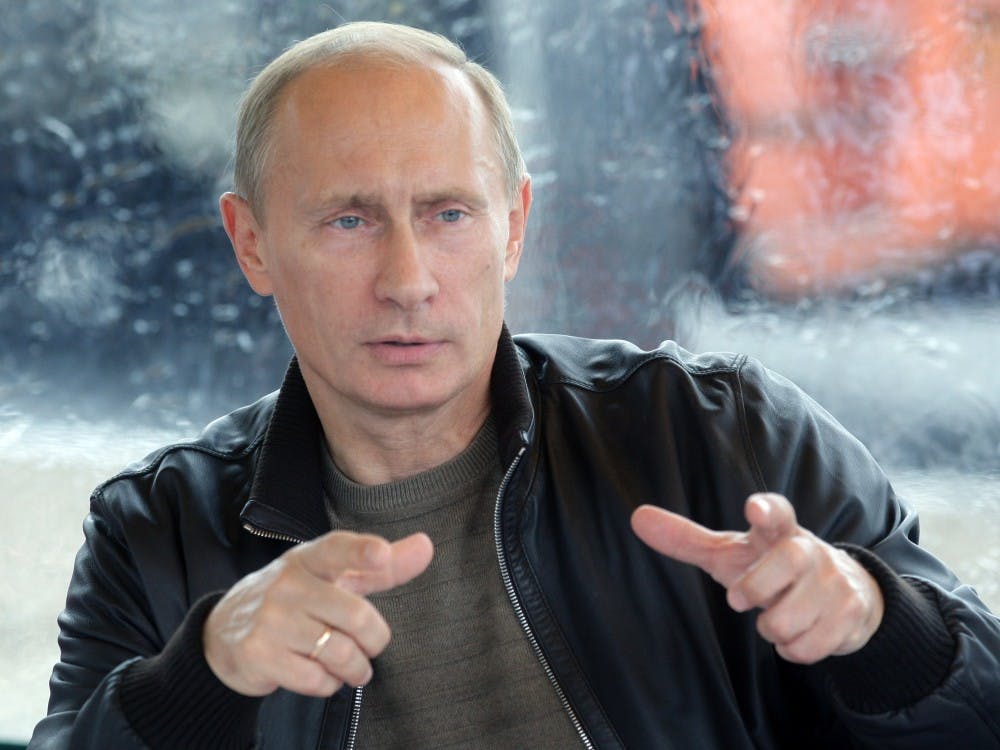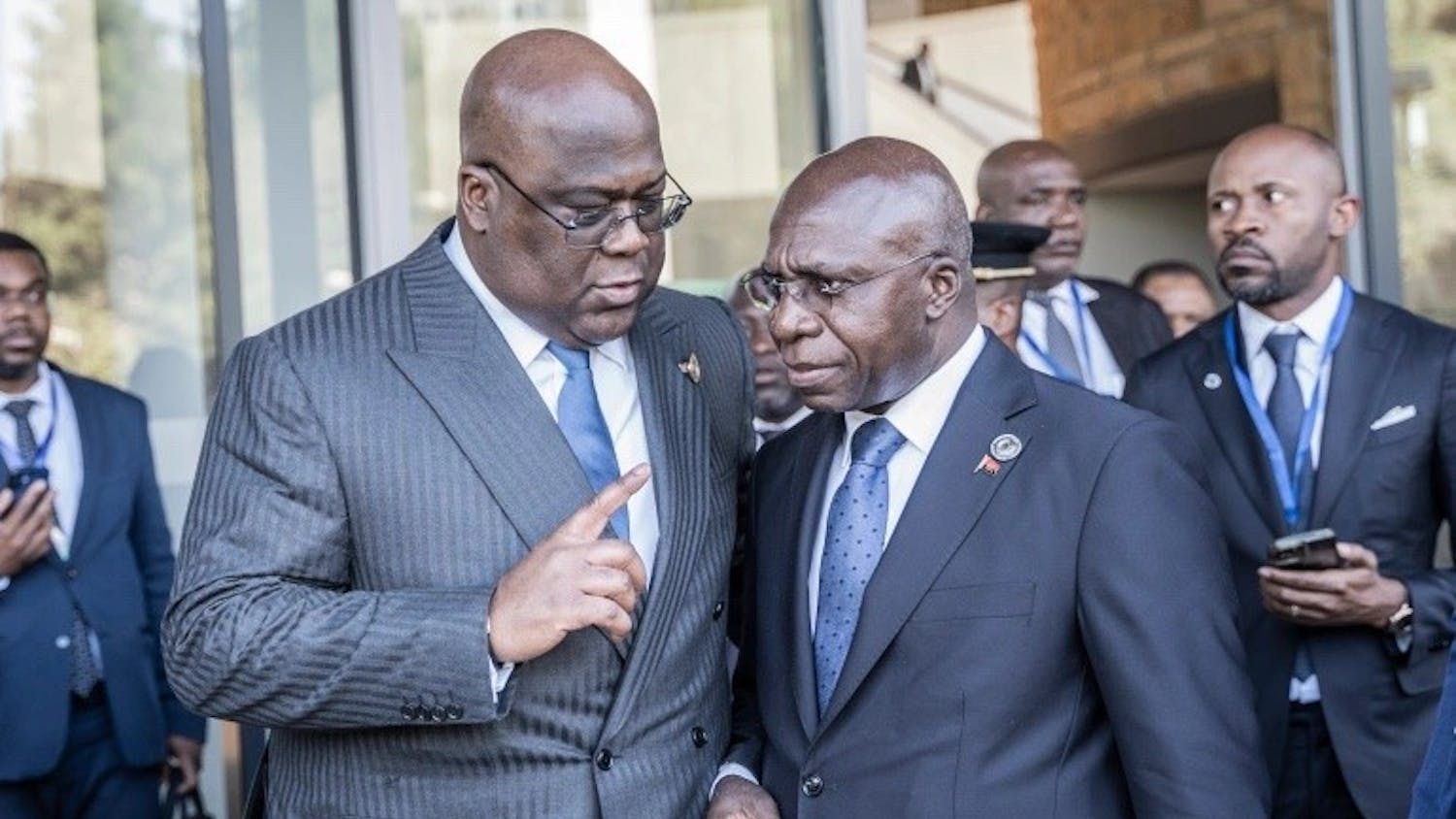By Joe Friedrichsen | The Echo

Open confrontation and hostility again plague what was once a promising relationship between Russia and the U.S. Spearheading the resurrected Cold War rivalry is Russian president Vladimir Putin. Though Putin's dramatic new foreign policy course came as a shock to Western powers, a closer examination of the context surrounding the shift reveals it shouldn't have come as such a surprise.
One contributing factor to the renewed tension is the U.S.'s failure to address Russia's interests and concerns following the Soviet Union's collapse.
According to Dmitri Trenin, director of the Carnegie Moscow Center, the West rejected Russia's pretensions of diplomatic equality with the U.S. government. Russia also seeks a sphere of influence (the informal power to affect developments in a country) or even a protective buffer zone from NATO eastward expansion. Dismissing these Russian claims, the U.S. instead required Russia to acknowledge America's global leadership and accept the EU's values and norms.
Unlike Putin, whose presidency has strained Russia's relationship with the West, former Russian President Dmitry Medvedev pursued a liberal foreign policy that focused on improving Russia's relations with the West.
During that time, Medvedev successfully negotiated Russia's entry into the World Trade Organization (WTO) in 2012. That acted as an entry point to begin the process of joining the Organization of Economic Cooperation and Development (OECD), the global forum of advanced economies and democracies.
Russia's liberal strategy was intended to enhance its economic and technological modernization by relying on further integration with Western economic institutions.
But after assessing Medvedev's term, Putin was not impressed with the results. He came to realize that the U.S. only allowed Russia to cooperate with Washington on its own terms and agenda.
For instance, in 2011, Russia abstained from a vote that allowed a U.N. Security Council resolution to pass, which established a no-fly zone over Libya. Russia believes the U.S. and NATO abused the resolution to remove Libya's leader, Muammar Qaddafi, from power, despite Moscow's protests.
As Trenin pointed out, such actions convinced Putin that the U.S.'s ultimate intention was to keep Russia on a leash. Putin also felt that Washington was marginalizing, ignoring and offering little respect for his country's interests and concerns.
Domestically, Putin needed to boost his popularity during the urban class's 2011-2013 protests against corruption in Russia's legislative process. Consequently, Trenin posits that Putin began using appeals to Russian nationalism to help cement his rule.
For that to be successful, there needed to be a foreign threat. Because nationalism tends to burgeon in the face of foreign aggression and bold new policies are often required to counter those threats, Putin gave himself an excuse to implement a new foreign policy to help distract from issues at home.
From 2012 onwards, Russia dropped its plans to integrate with the West. Instead, Putin believed Russia had to balance power in its unequal relationships with the U.S. and the EU by focusing on its national interests. But how could Russia gain equality with the U.S. and EU?
Answering that question, Putin published an article in October 2011 where he envisaged a large political and cultural Eurasian union, complete with security arrangements to bring former Soviet republics of the Commonwealth of Independent States back together.
This entity would act as a means to deal with the EU, U.S. and China on equal terms, preventing Russia from becoming peripheral to Europe and Asia.
March 2014 marked the first step towards this vision. Reuters reported that Russia, Kazakhstan and Belarus signed a treaty forming a massive trading bloc known as the Eurasian Economic Union. That treaty came into effect on January 1, 2015.
At the heart of Putin's geopolitical dream is the issue of values. According to Trenin, Putin believed post-1960s Europe consisted of what Putin termed "post-Christian" Europeans who embraced "equality of good and evil."
In other words, Putin characterized modern Europeans by their moral relativism, vague sense of identity and excessive political correctness. Worse, according to Putin, Europeans seek to impose their incorrect views on other countries, including Russia.
Thus, Putin is positioning Russia as a bulwark-protecting traditional Christian values to counter the cultural looseness and tolerance of perceived immoral values in the West.
With all of that in mind, what should be the main takeaways for Western leaders? First, Russia's breaking out of the U.S.-led international system is primarily due to the West's failed attempts to successfully integrate Russia into the Euro-Atlantic community. But more importantly, the U.S. should be prepared to deal with this new period of hostility between Russia and the West that will likely endure for years.





